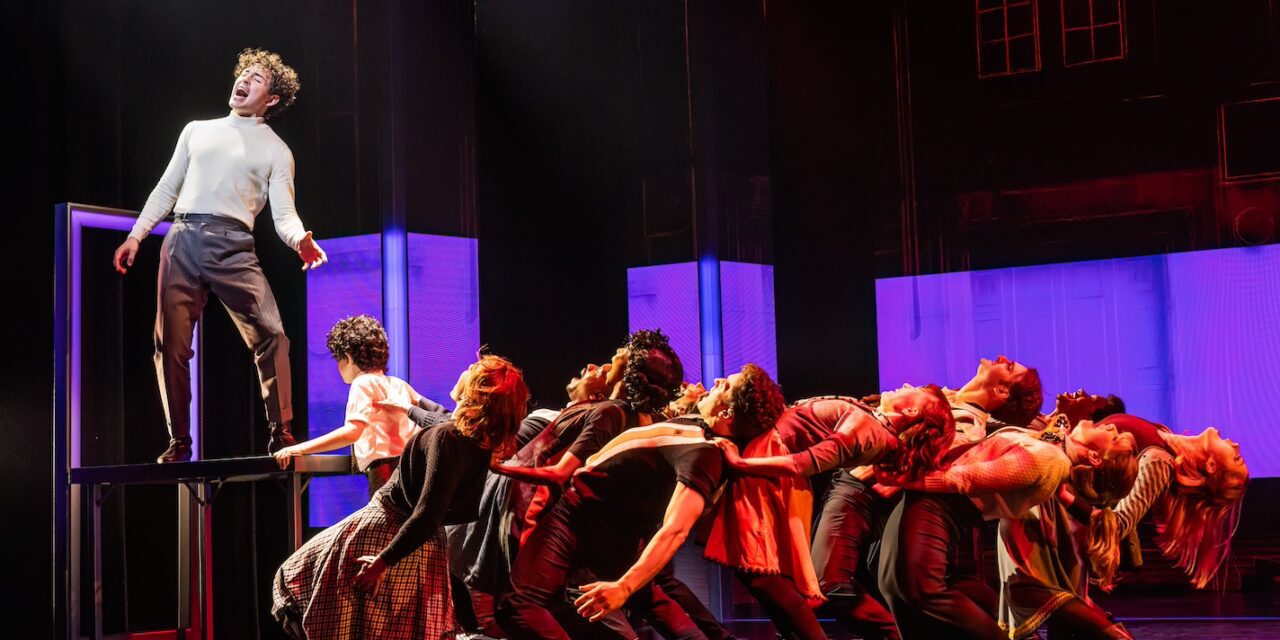Theater Review by JK Clarke . . . .
Fans of the rock opera Tommy, whether it’s the album, the 1975 film, or the original Broadway production are no longer just Boomers. Classic rock radio stations across the country have seen a surprising surge of Gen Zers clamoring for the music their parents played around their houses growing up. That means, in theory, The Who’s Tommy is for everyone. Yet the show’s new Broadway revival, now playing at the Nederlander, makes it hard not to ask the question, “Who exactly is this Tommy for?”
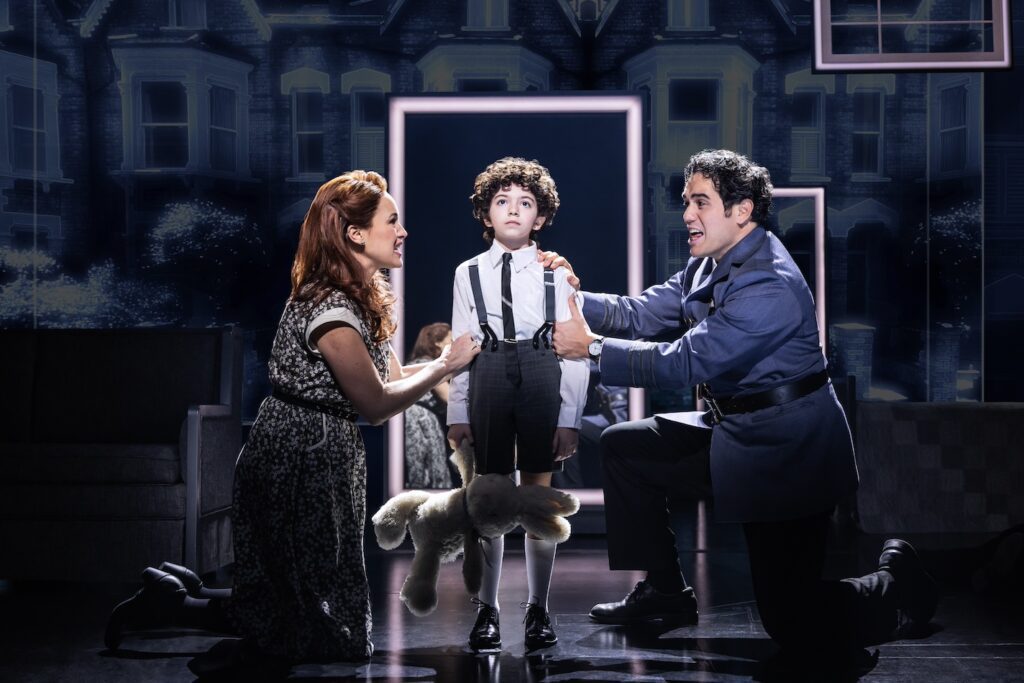
If one were to argue that the slick new production is a nostalgia trip for old rock and roll fans of either The Who or simply of Pete Townsend’s most lasting creation of storytelling and relentlessly identifiable musical sound, they’d be wrong—it’s hardly that at all. What should be a celebration of edgy, unconventional, sick guitar licks partnered with lyrics sung by gritty rock voices that sound like they’ve been through a blender (evident here, in The Who’s 1969 Isle of Wight concert) is instead a muted, watered-down, Broadway “jazz-hands” version with all the edge and grit of . . . elevator music.
When The Who’s Pete Townsend wrote Tommy—having already co-created some of the most memorable rock albums and anthems (“My Generation,” “Magic Bus”) in history—he didn’t want to create a cliché “American musical,” which is why he called Tommy a “rock opera.” He took the concept of an opera and added iconic, angry, early 70s hard rock to construct something truly original. Coining the term “underture” in opposition to the “overture” he seamlessly connected a musical narrative that told the rage-infused story of a typical British family emerging from the hell that was World War II in a manner that was far too great and memorable to be labeled merely an album of “songs.” To not honor this musical history with the passion it deserves depletes its original power.
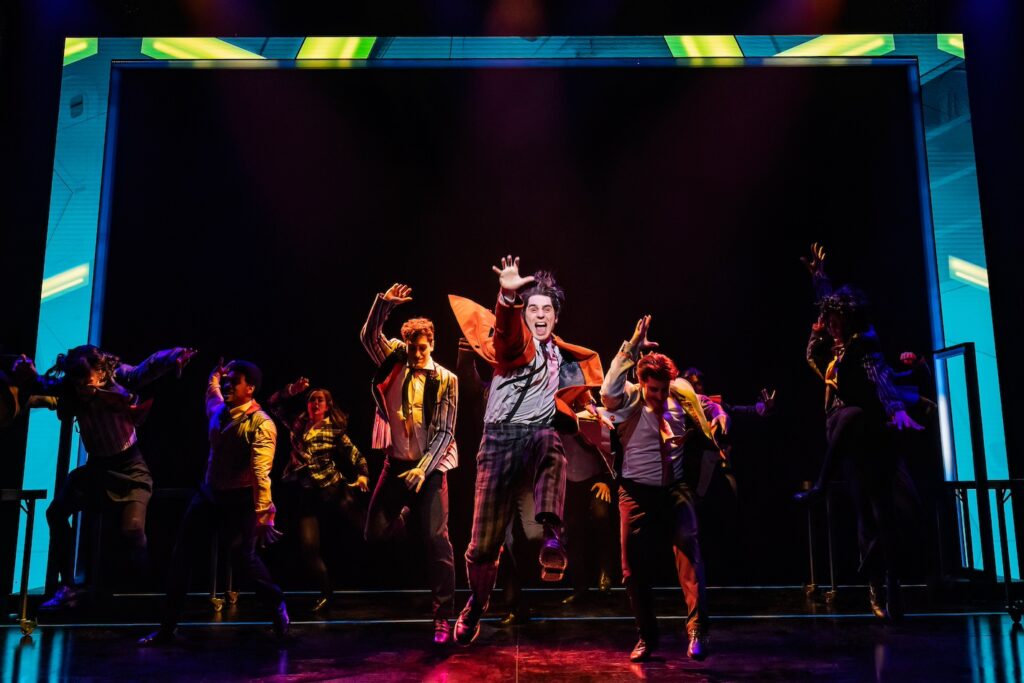

Unfortunately, in this revival, Director Des McAnuff (who also has book credit here), has apparently chosen to ignore the passion and rage that drives Tommy. A tragedy through and through, it tells the tale of the Walker family, seemingly torn apart as we see in the “Overture/Captain Walker,” number (accompanied here by World War II newsreel-style video projected onto transparent screens). Walker (Adam Jacobs) is captured and becomes a prisoner of the Nazis. But Mrs. Walker (Alison Luff, strong, but a bit too wholesome for the part) is informed by military officials, shortly after the birth of Tommy, that the Captain is dead. Naturally, she moves on with her life and has a new lover/partner. Upon Captain Walker’s release a few years later from P.O.W. camp, he encounters the new man in his home and shoots him dead. Having witnessed the whole thing, four-year-old Tommy is encouraged by his parents, “You didn’t hear it, you didn’t see it,” (“1921”), leading to a sort of hysterical blindness and muteness in the boy. Young Tommy (played on the night I attended by Olive Ross-Kline who alternates with Cecilia Ann Kopp), who might have been better represented through puppetry, becomes an emotionless, but idiosyncratic, silent figure in the home, a totem of a covered-up murder.
As Tommy grows up, his parents entrust him to figures who corrupt or abuse him. One of the more disturbing songs in the opera, nay in rock music overall, “Fiddle About,” describes his sexual abuse at the hands of his Uncle Ernie (John Ambrosino). But, as portrayed in this production, you’d hardly know it. The staging of the song might even lead one to wonder if the uncle was just a bit irresponsible, rather than a pedophile destroying an already severely damaged child. Why this scene would be so sanitized is beyond comprehension, but is a perfect illustration of the gutting of the story’s deeper meanings.
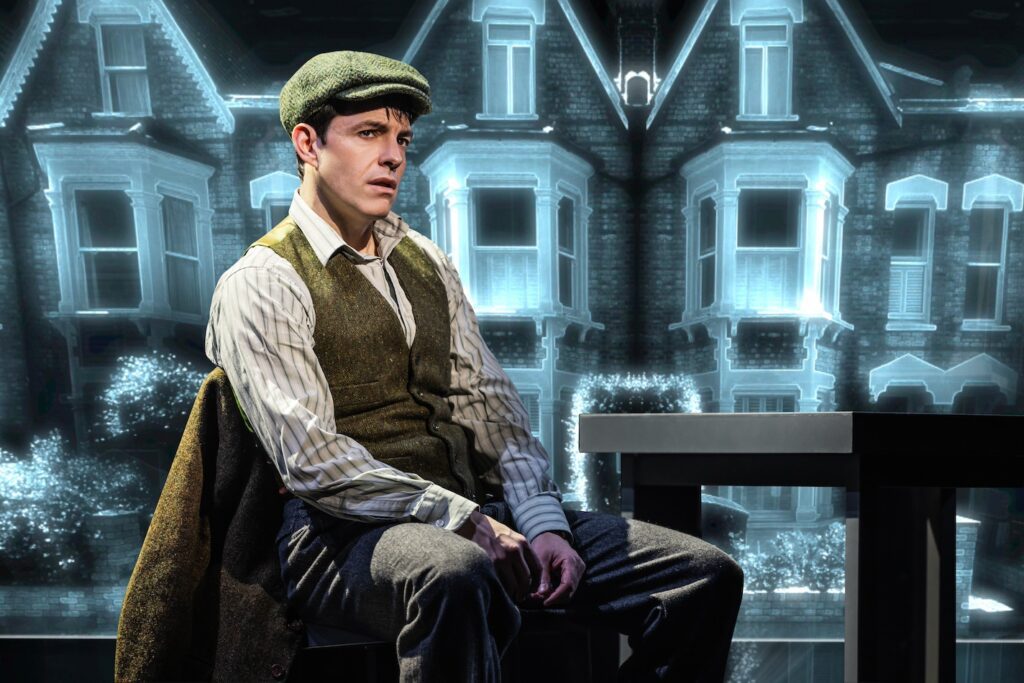

In fact, most of the show’s dramatic interpretation continues on this path. The adult Tommy (Ali Louis Bourzgui) barely makes an impression and lacks the throaty roar of a rock singer. And the choreography (Lorin Lotarro) feels more like an “Up With People” performance one might’ve seen in a 1980s Super Bowl halftime production. When Tommy is taken by his sadistic Cousin Kevin (Bobby Conte) to the rough and tumble neighborhood community center where he is introduced to pinball, an apparent salvation for the unexpectedly talented young boy, it feels more like the ensuing “Pinball Wizard” is set in a 1950s soda fountain shop, more at home in an idyllic Back to the Future town than grimy post-war London.
Ultimately the show’s failure comes down to the artistic decisions by McAnuff. While the set and costumes may be artistically compelling, they’re not effective for this story at all. David Korins’ scenic design is a collection of frames of lights (Amaznda Zieve) and projections (Peter Nigrini) in lieu of a tangible set. And while some components of Sarafina Bush’s costumes are period perfect (especially the English neighborhood characters and the local bobbies), others are downright baffling—in particular several characters who randomly appear on stage adorned in shiny silver helmets (constructed from pinballs themselves?), rendering them more suggestive of the celebrated French electronica duo Daft Punk, whose style suggests many things, but not rock and roll. And as for the music itself . . . well, if I didn’t know any better (i.e. about stringent union regulations) I might almost have wondered if it were canned. The intensity of these ripping, jagged songs was muted, as if sanded, buffed down, and polished.
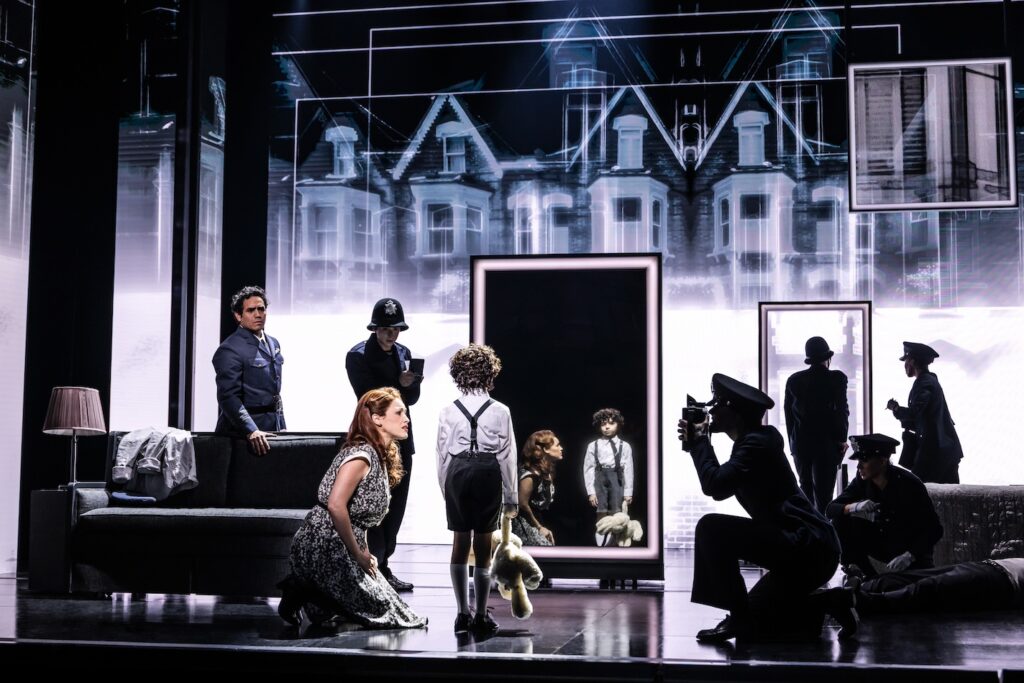

One might say that the plaintive wail that is the heart of Tommy: “See me, touch me, feel me, heal me” could stand in for a large sector of British rock of the 1960s—a shrieking out for love that will eventually be quelled, quite literally, by “sex, drugs, and rock and roll”—that was brought on by the pervading sense of loss that World War II inflicted on England. It created some amazing music, but the sadness is still there, just under the surface. Unfortunately, in this production there’s no evidence of any of that passion and pathos whatsoever.
The Who’s Tommy. Open run at the Nederlander Theatre (208 West 41st Street, between Seventh and Eighth Avenues). www.tommythemusical.com
Photos: Matthew Murphy and Evan Zimmerman


